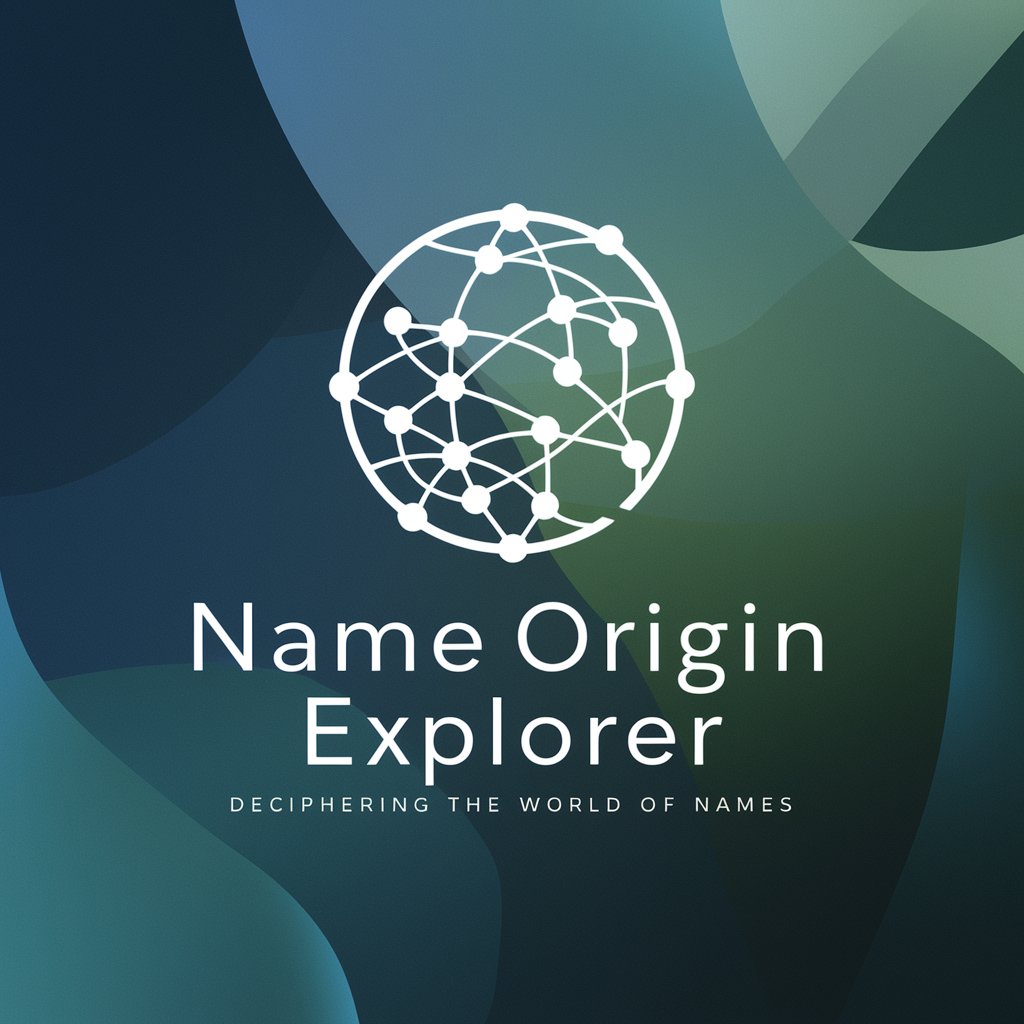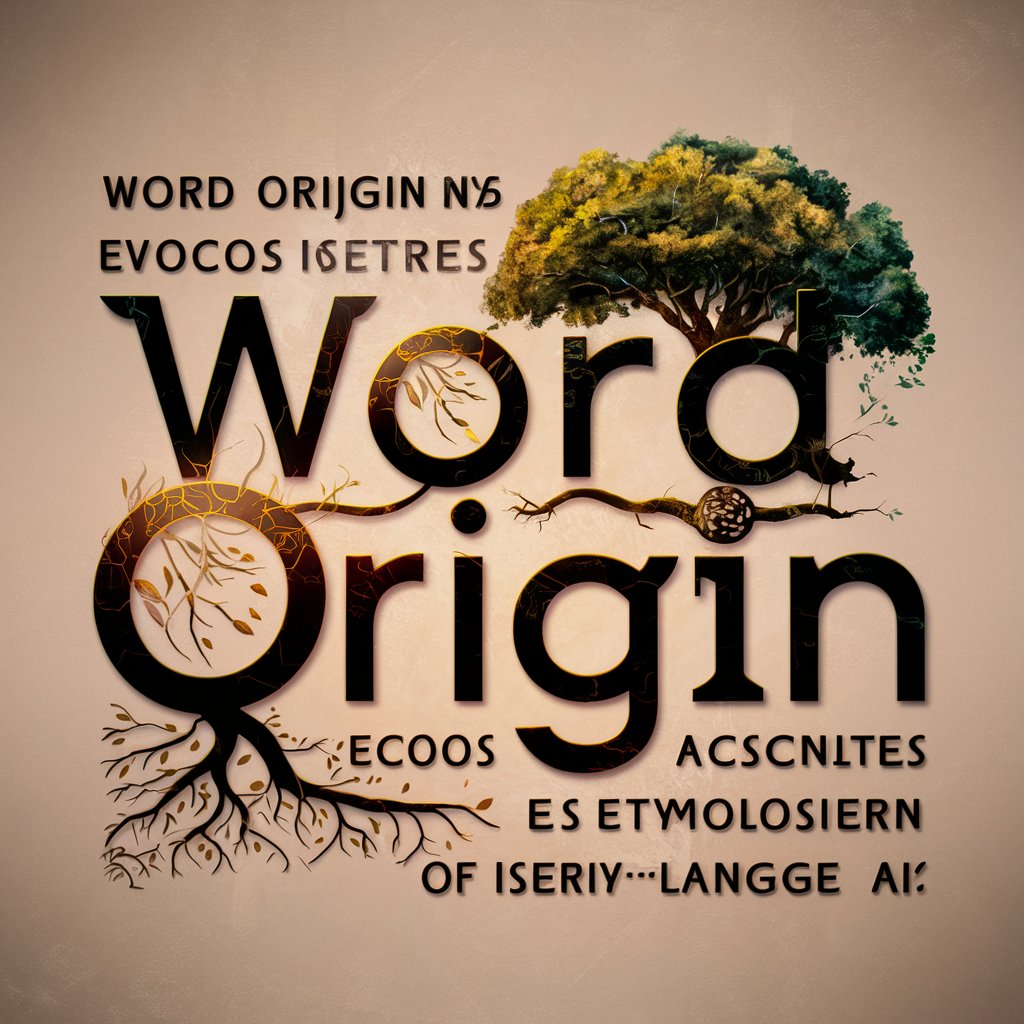
Name Origin Explorer - Name Analysis AI Tool

Hello! I'm here to help you explore the origins of names.
Discover Your Name's Story with AI
Can you tell me the origin of the name
What is the most likely geographical background of the name
I'm curious about the country or region associated with the name
Could you provide some insights into the origins of the name
Get Embed Code
Introduction to Name Origin Explorer
Name Origin Explorer is a specialized tool designed to provide insights into the geographical origins and cultural context of names. It uses a database and algorithms to analyze names based on patterns, historical data, and linguistic features, offering educated guesses about their most likely country and region of origin. This tool is particularly useful in scenarios where understanding the cultural or regional background of a name can provide additional context, such as in academic research, genealogy, or social interactions. For example, if someone encounters the name 'Oksana' in a novel, Name Origin Explorer can suggest that this name is commonly associated with Eastern European countries like Ukraine, enhancing the reader's understanding of the character's cultural background. Powered by ChatGPT-4o。

Main Functions of Name Origin Explorer
Geographical Origin Analysis
Example
Determining that the name 'Aarav' is commonly found in India.
Scenario
A user researching character names for a book set in India might use Name Origin Explorer to verify that 'Aarav' fits the cultural setting.
Cultural Context Provision
Example
Explaining that the name 'Fatima' is prevalent across various Muslim-majority countries.
Scenario
A cultural educator preparing materials on naming conventions might use this information to illustrate the spread of certain names due to religious influences.
Linguistic Feature Analysis
Example
Highlighting the Germanic roots of the name 'Schneider'.
Scenario
An individual exploring their family tree may use this feature to trace back the linguistic origins of their surname, aiding in genealogical research.
Ideal Users of Name Origin Explorer
Genealogists and Family Historians
These users benefit from understanding the origins and migration patterns of surnames within families, aiding in tracing lineage and understanding ancestral roots.
Writers and Content Creators
Authors and scriptwriters use Name Origin Explorer to select appropriate names for characters based on cultural and regional contexts, ensuring authenticity in their storytelling.
Educators and Researchers
Academics and teachers utilize the tool to provide examples and explain the significance of cultural diversity in names, enriching educational content and research.
Social Workers and Global Professionals
These professionals may use the tool to better understand the cultural backgrounds of people they work with, fostering a respectful and informed interaction in diverse environments.

How to Use Name Origin Explorer
Begin your journey
Visit yeschat.ai to access Name Origin Explorer for a free trial without needing to log in or subscribe to ChatGPT Plus.
Input the name
Enter the first name, last name, or full name into the designated input field to initiate your query about its origin.
Specify details
Provide any known details about the name such as the country of interest, spelling variations, or cultural context, if available, to refine the search.
Review the analysis
Examine the detailed breakdown of the name's likely geographical origins, historical and cultural significance, and common usage.
Utilize results
Use the information provided to enhance your understanding of names for personal interest, academic research, or professional projects.
Try other advanced and practical GPTs
Word Origin GPT
Discover the roots of words with AI!

Game Dev Origin
Elevate Your Game with AI-Powered Development Insights

Text Origin Analyzer
Decipher Text Origins with AI Power

西方经济学刀哥
Your AI-powered guide to Western economics

与文森特一起学习法语
Master French with AI-Powered Guidance

中医-中药学-图解千金方
Explore Traditional Chinese Medicine with AI-powered visuals

Word Origin
Unravel Words with AI-Powered Insights

English Words, Viking Origin
Unraveling English’s Viking DNA

Grant Guru
Empowering Nonprofits with AI-Powered Grant Writing

Grant & Proposal
Automating grant and proposal success.

Grant Guide
Powering Your Grant Success with AI

Grant Navigator
Unlocking Grants with AI

Frequently Asked Questions about Name Origin Explorer
What does Name Origin Explorer do?
Name Origin Explorer analyzes names to provide insights into their geographical origins, historical context, and cultural significance. It uses a comprehensive database and AI algorithms to offer educated guesses about names from around the world.
Can Name Origin Explorer determine the origin of any name?
While Name Origin Explorer can analyze a wide range of global names, its accuracy might vary depending on the name’s rarity or availability of data. It performs best with names that have documented historical and geographical information.
How accurate is Name Origin Explorer?
The tool provides educated guesses based on extensive data, but it should not be considered infallible. Accuracy can vary, especially for names with less historical documentation or those that are culturally ambiguous.
Can I use Name Origin Explorer for academic research?
Yes, the tool is suitable for academic purposes, particularly in studies involving cultural studies, genealogy, and anthropology. It provides a starting point for deeper research into the origins and meanings of names.
Is there a limit to how many names I can analyze in a session?
There are no limits to the number of names you can analyze in a session with Name Origin Explorer, making it ideal for extensive research or personal exploration.